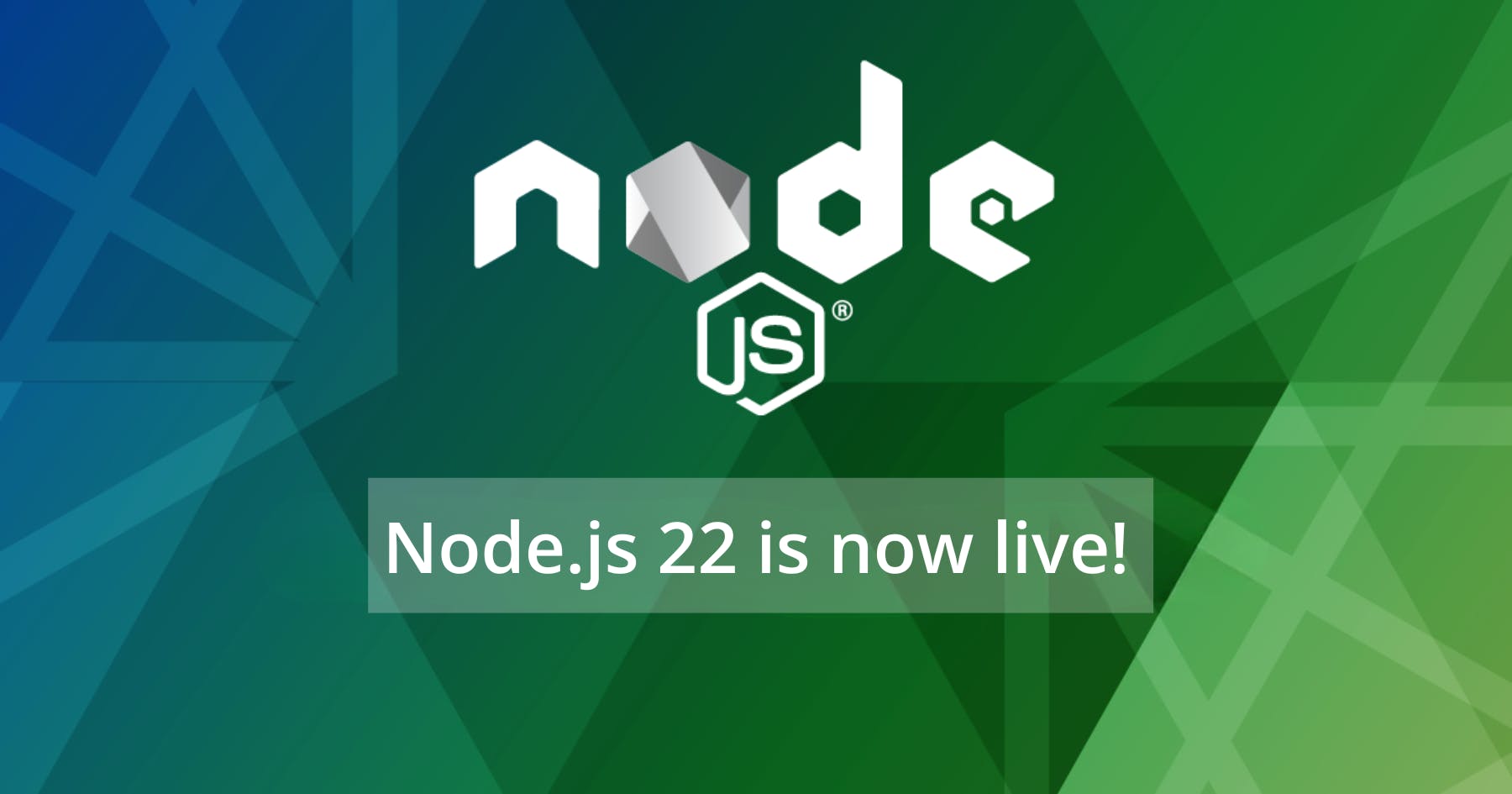Node.js 22 Available Now
The release of Node.js 22 is available now! Highlights in Node.js 22 include require()ing ESM graphs, WebSocket client, updates of the V8 JavaScript engine, and more!

The release of Node.js 22 is available now! Highlights in Node.js 22 include require()ing ESM graphs, WebSocket client, updates of the V8 JavaScript engine, and more!
Node.js 22 replaces Node.js 21 as our current release line. Node.js 22 will be Current release for the next 6 months, until October 2024, when it will become Active. Here is our full Node.js release schedule.
“Node.js 22 improves a lot of small, important areas, and continues to make it easy in enterprise deployments to use JavaScript to write command line tools and for server-side scripting,” said Rafael Gonzaga, Node.js Technical Steering Committee (TSC) Member. “The broad Node.js community is critical to the continued improvement of the software and a big part of this release. Many thanks to our open source contributors for putting in the time and effort and making Node.js better with each release. Thank you also to OpenSSF and Project Alpha Omega for helping us improve Node.js security.”
“Node.js demand among developers continues to grow as the need for reliable and scalable web applications rises. With Node.js 22, you are working with an even-numbered version that will be production-ready and add long-term support in 6 months. It’s the right time to test and get ready for deployment,” said Marco Ippolito, Node.js core collaborator. “Node.js continues to improve and deliver features that make it easy for enterprises to build out their back-end.”
Main updates for Node.js 22
- V8 JavaScript engine updated to 12.4
- Support for require()ing ESM graphs is now enabled through experimental flag. We intend to enable it by default in the future to allow package authors to publish ESM-only packages while maintaining support for CJS users, and help the ecosystem migrate to ESM incrementally
- Added WebSocket client
- node --watch now stable - node --watch is a mode in which you can run your node server and it will reload when a change happens to the specified file or path. First introduced in v18.11.0 as an experimental feature
- Increased the default highWaterMark for streams. This provides a performance boost across the board at the cost of slightly higher memory usage. Users in memory sensitive environments (e.g. Smartwatch development) are encouraged to monitor how this change will affect their environment and explicitly set setDefaultHighWaterMark.
- A full list of Other Notable Changes, Deprecations and Removals, Semver-Major, Minor, and Patch Commits all available here
Download Node.js 22 here and get started testing right away!
Want to make a difference in the future of Node.js?
Take our survey to share your experience with Node.js here. Your feedback is greatly valued and appreciated!